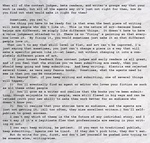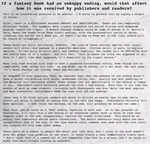Brandon Sanderson
The book [Oathbringer] did great, and I'm doing just fine. US and UK publishers are both very happy. I achieved financial independence through my writing years ago at this point, and I have plenty of money. I have enough in investments that my passive income would be enough to live for the rest of my life at my current standard of living--I write purely for artistic satisfaction. (Which has kind of been the way it's always been, but it IS far less stressful now.)
We're generally really coy about talking numbers in the book industry, perhaps because we don't want to brag. There are a ton of authors out there who sell less than 1k books on a new release, and so flaunting my numbers...well, I don't know. It makes me uncomfortable.
That said, remember that books and records don't sell as much as people assume they do. Taylor Swift, one of the most popular singers of our time, sold...what, 1.5 million albums the first week of her last release? Granted, album sales aren't what they used to be (it's all about streaming now), but film numbers tend to make us inflate book and album numbers in our heads. 2k book sales is enough to get on the bestseller list, many weeks of the year.
(As an aside, when Elantris sold 400 copies its first week, and I was devastated until my agent told me that was actually really good for a new author hardcover.)
That said, we did WAY more than 400 copies, and Oathbringer is the bestselling book I've ever had out of the gate. It's probably more like double or 2.25 the opening of Words. (When I said 3X I was forgetting that my Words of Radiance figures didn't include audio, while my Oathbringer numbers did.)
Oathbringer will likely crest a million copies across all formats--but it will take a number of years. I'm not sure if TWOK has hit a million yet, for example. (Though if it hasn't, it's in that neighborhood.) Very few books get to 10mil without some kind of film or television franchise to propel them. I'd guess that the only single sf/f book sitting at over 10mil copies without a major adaptation is Foundation.
Anyway, Oathbringer's success won't stop the publishers from griping just a little that the books are too long. (Bookstores complain that they don't fit on shelves very well, and take up too much space, things like that.) But the book will still sell more copies than any other new release the publisher has this year, and if they do gripe, it's mostly just habit at this point. They're actually quite pleased. They just can't help imagining a world where they could split Oathbringer into three smaller books, and make the bookstores happy while making more money.
(And note, you shouldn't be annoyed at them for this. The publisher's job is to point out financial realities, as authors tend to be very bad at such things. They didn't try to force me to cut or split the book. They just always ask, very nicely, "Is there a way the book could be shorter?" and I reply, "Sorry. But this is how it has to be." And then they go about making it work.)
Be warned, though, we might have to go from hardcover straight to trade paperback (skipping the mass market paperback) because of printing realities.
alexanderwales
One thing I've long been curious about: how much does putting out a new book in a series increase sales of the first in the series? I would assume that Oathbringer caused a bump in sales for The Way of Kings, but I'm not sure to what extent, or if that assumption actually holds true.
Brandon Sanderson
The assumption holds true. Bookscan for last week proves it. This is only print books recorded by retail chains, so it's only a small glimpse, but it's most of the print numbers. (As it does include Amazon and B&N.) I'll put numbers from six months ago in () after, so you can see the growth.
TWOK: 1500 copies (700)
WOR: 800 copies (450)
TWOK: Trade Paperback: 650 Copies (156)
TWOK Hardcover: 454 (123)
Mistborn 1: 450 Copies (350)
Mistborn Trilogy Boxed Set: 450 Copies (350)
Words of Radiance Trade paperback: 380 copies (Not out yet)
Words of Radiance hardcover: 270 copies. (130)
Steelheart: 325 copies (274) Arcanum hardcover: 280 Copies (180)
Bands of Mourning, Shadows of Self, Warbreaker, Alloy of Law: All right around 230-260 (Maybe 10% different.)
Elantris, Firefight, Calamity, Mistborn 2, Mistborn 3: 160-200 (Same.)
Lowly Rithmatist at the bottom with 113. (85)
Note that some things, like the hardcovers jumping up in sales, are because bookstores ordered them special for my signings.
Innoculi
What about digital copies?
Brandon Sanderson
They tend to run 2X the print, but I don't get an email with them every week like I do print--so I don't track them as closely.


